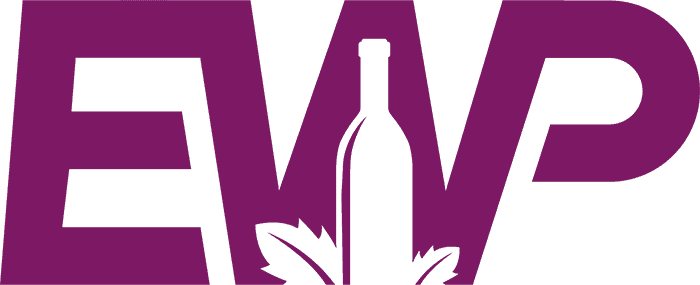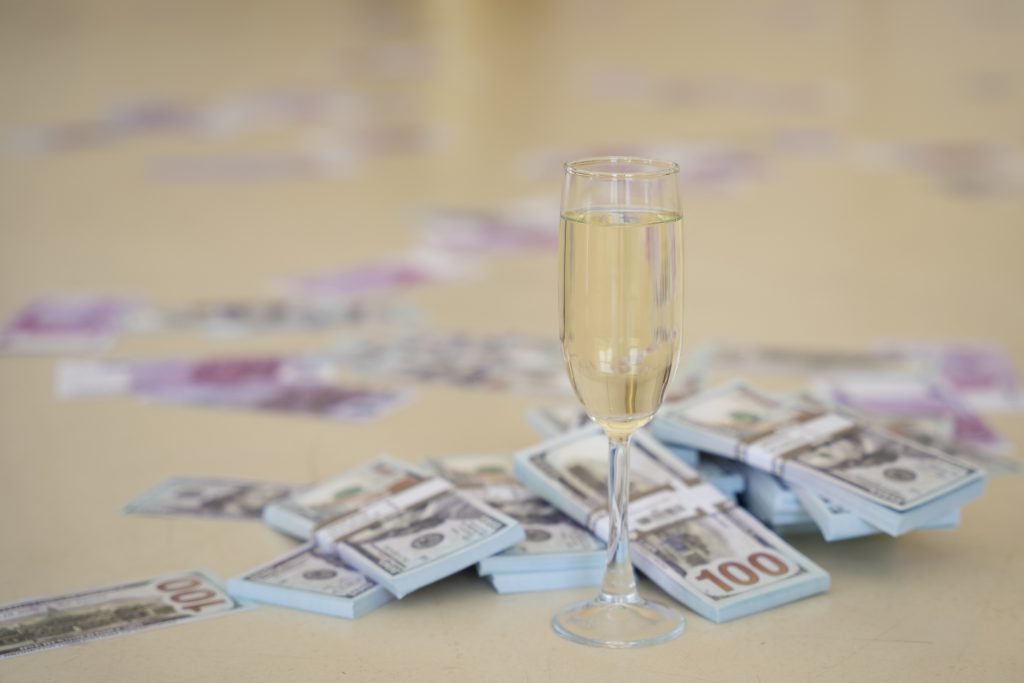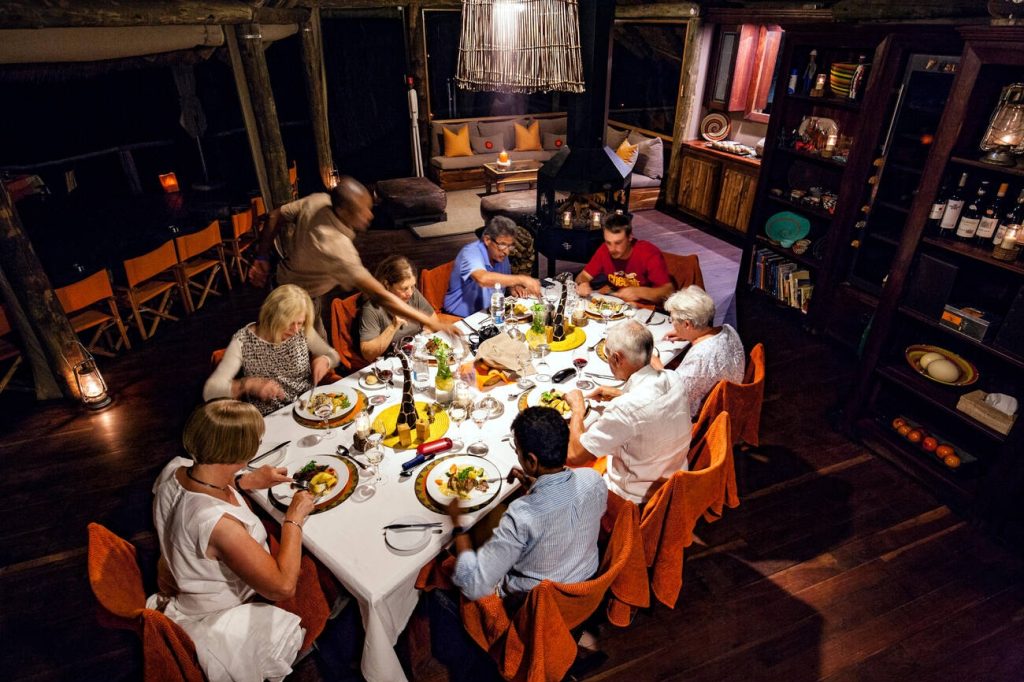If you love wine and want to understand the economics behind the French wine industry, this article is for you. Dive into the world of French wine as we explore a market that generated a staggering $15.6 billion in 2022. Discover record-breaking exports, rising markets, and the challenges faced by the industry. Join us as we uncover the economic landscape of this vibrant and lucrative market. So grab a glass of your favorite French wine and let’s get started.
Contents
- French Wine and Spirits Export Statistics
- Growth in Export Markets
- Global Revenues for French Wine and Spirits
- Challenges Faced by the Industry
- The Role of the French Federation of Exporters of Wine and Spirits (FEVS)
- Margaux Moze’s Interest in Wine and Study Abroad Experience
- Research Recognition and Interest in Sustainability
- Work Experience in the Wine Industry
- Influence of Professors and Pursuing Passions
- Importance of Champagne in French Culture and History
French Wine and Spirits Export Statistics
When exploring the French wine and spirits export statistics, you’ll find that in 2022, French wine and spirit exports reached a record amount of 17.2 billion, marking a 10.8% increase compared with the previous year. This demonstrates strong growth and highlights the importance of wine exports for the French economy. French wine export trends show that the United States remains a significant market, with exports rising by 14% to 4.7 billion. The United Kingdom also saw an increase of 7% in 2022, reaching 1.7 billion. The growth of the wine industry in Asia is also noteworthy, with exports to the region reaching 3.9 billion. Japan and South Korea experienced significant growth, with increases of 23% and 31%, respectively. However, challenges faced by French wine exporters cannot be ignored. Geopolitical tensions and logistical issues have impacted wine exports, particularly in China and Hong Kong, where severe lockdown measures affected results. Despite these challenges, the wine industry in France has shown resilience, and the positive results at the end of 2022 reflect the industry’s ability to adapt and thrive.
Growth in Export Markets
As you delve into the growth in export markets for French wine and spirits, you’ll discover that the United States, the United Kingdom, and Asia have emerged as key destinations for these products. In 2022, French wine and spirit exports to the United States reached a value of $4.7 billion, representing a 14% increase compared to the previous year. The UK market also saw significant growth, with exports increasing by 7% to reach $1.7 billion. Meanwhile, the Asian market, which includes countries like Japan and South Korea, experienced a slight increase, reaching a total value of $3.9 billion. Japanese imports of French wine and spirits saw a 23% increase, while South Korea experienced a 31% increase in imports. However, it is important to note that China and Hong Kong’s results were affected by severe lockdown measures. Overall, these export markets demonstrate the global demand for French wine and spirits and the industry’s ability to adapt and expand its reach.
| 2022 Export Value (in billions) | |
|---|---|
| United States | $4.7 |
| United Kingdom | $1.7 |
| Asia | $3.9 |
Global Revenues for French Wine and Spirits
French wine and spirits achieved impressive global revenues in 2022, totaling $17.1 billion. Here are four key insights about the global revenues for French wine and spirits:
- French spirits’ global revenues grew by 11.6%, reaching $5.5 billion. This growth indicates a strong demand for French spirits in the global market.
- French wine’s global revenues amounted to $11.6 billion, with a growth rate of 10.2%. Despite challenges faced by the industry, the French wine market continues to thrive and attract consumers worldwide.
- The volume growth for spirits was 55.7 million cases, representing a 2.2% increase. This indicates a steady demand for French spirits, contributing to their global revenues.
- However, the volume for wine decreased by 6.6% to 135.4 million cases. This decline can be attributed to challenges such as the 2021 frost and geopolitical and logistical tensions. Despite this decrease in volume, the French wine industry still managed to generate significant global revenues.
These insights highlight the resilience and profitability of the French wine and spirits industry, as well as the challenges it faces. To sustain this success, the industry must address issues such as price increases, inflation, and declining consumption habits. Embracing sustainability practices can also contribute to the long-term growth and profitability of the French wine market.
Challenges Faced by the Industry
To understand the challenges faced by the industry, let’s delve into the economic factors affecting the French wine market. The industry has been impacted by inflation, leading to an increase in wine prices. This has made it more difficult for consumers to afford their favorite bottles of French wine. Additionally, the effects of a low harvest in 2021 have been felt throughout the industry. The lower availability of still wines due to the frost and geopolitical tensions has led to a slight decrease in volume. Geopolitical tensions have also affected exports, with certain countries destabilizing the industry through commercial consequences. Another challenge faced by the industry is the decline in wine consumption habits. With changing preferences and lifestyle choices, consumers are consuming less wine overall. Finally, currency exchange has had a significant impact on the industry. Fluctuations in exchange rates can affect the cost of importing and exporting wine, making it challenging for businesses to plan and operate effectively. Overall, these challenges highlight the need for the industry to adapt and find innovative solutions to remain competitive in the global market.
The Role of the French Federation of Exporters of Wine and Spirits (FEVS)
The role of the French Federation of Exporters of Wine and Spirits (FEVS) is crucial in navigating the economic challenges faced by the French wine and spirits industry. The FEVS plays an instrumental role in promoting French wine and spirits on the global stage, expanding export markets, addressing industry challenges, and supporting sustainable practices in the wine industry.
Here are four key initiatives undertaken by the FEVS:
- Promoting French Wine and Spirits: The FEVS actively promotes French wine and spirits internationally, showcasing their quality, heritage, and diversity. Through marketing campaigns and participation in trade shows and events, the FEVS helps raise awareness and generate demand for French products.
- Expanding Export Markets: The FEVS works to expand export markets for French wine and spirits. By identifying new markets, negotiating trade agreements, and providing export support and guidance to businesses, the FEVS helps French producers access global markets and increase their international sales.
- Addressing Industry Challenges: The FEVS addresses industry challenges by providing a unified voice for French wine and spirits exporters. It advocates for the industry’s interests, engages in dialogue with regulatory bodies, and supports measures that promote a favorable business environment for the sector.
- Supporting Sustainable Practices: The FEVS promotes sustainable practices in the wine industry. It encourages producers to adopt environmentally friendly methods, reduce their carbon footprint, and implement sustainable viticulture and winemaking practices. Through education and awareness campaigns, the FEVS supports the industry’s transition towards a more sustainable future.
Margaux Moze’s Interest in Wine and Study Abroad Experience
You developed an interest in wine through your enduring fascination with French culture. It all began when you went to France after your junior year in high school and noticed that wine was a significant part of the culture. This interest deepened during your semester abroad in a small town in the south of France, where you were exposed to the world of the international wine trade. Wanting to explore a creative application of your economics coursework, you found a study abroad program that offered an economics and wine class. You applied for and were awarded the Buckman-Mollerup Scholarship, allowing you to attend the International American University in Aix-en-Provence.
Under the guidance of Amy Mumma, an expert in the international wine industry, you immersed yourself in wine culture and conducted a research project on the international champagne trade. This project involved a blind tasting and ranking of various sparkling wines, with a focus on the perception of champagne by millennials in the United States. Impressed with your research, Mumma encouraged you to submit your work to the American Association of Wine Economists (AAWE), leading to an invitation to present your research at their conference in Vienna, Austria.
During your study abroad experience, you also developed an interest in the ecological side of the wine industry, particularly in sustainability. You highlighted the debate between using corks or twist-offs and the push for sustainability in the industry. For instance, you mentioned Austria’s switch to twist-offs and the stereotype associated with them in the U.S. This interest in sustainability continues to shape your perspective on the wine industry.
After the AAWE conference, you gained practical work experience in the wine industry by working at a winery in Fredericksburg, Texas. This experience allowed you to learn about various aspects of the industry, including marketing, pricing, and event hosting. You also had the opportunity to work in the vineyard, pruning vines and making connections with other harvesters. This hands-on experience further solidified your credibility in the wine industry.
Throughout your journey, you have been influenced and supported by your professors in the economics department, particularly Professor Collins and Professor Teresa Gramm. They encouraged you to pursue your passions beyond macroeconomics, emphasizing aspects such as international trade and sustainability. You appreciated the opportunity to explore economics in a broader context at a liberal arts college.
Research Recognition and Interest in Sustainability
Impressed with your research on the international champagne trade, your interest in sustainability within the wine industry grew, leading you to highlight the debate between using corks or twist-offs and the push for sustainability. Here are four insights to help you better understand the research recognition and interest in sustainability in the French wine industry:
- Research recognition: Your research on the international champagne trade caught the attention of experts in the field. You were invited to present your findings at the American Association of Wine Economists (AAWE) conference in Vienna, Austria. This recognition validated the significance of your work and further fueled your interest in exploring sustainability in the industry.
- Sustainability debate: Within the wine industry, there is an ongoing debate regarding the use of corks or twist-offs as closures for wine bottles. Proponents of twist-offs argue that they are more sustainable, as they have a lower carbon footprint and reduce the risk of cork taint. However, there is a stereotype associated with twist-offs, particularly in the United States, where they are often seen as low-quality.
- Ecological side: Your interest in sustainability within the wine industry extends beyond closures. You are exploring other ecological aspects, such as organic and biodynamic farming practices, water conservation, and energy efficiency in winemaking processes. These practices are gaining recognition as consumers become more conscious of the environmental impact of their choices.
- Push for sustainability: The wine industry as a whole is increasingly embracing sustainability practices. Wineries are implementing initiatives to reduce their environmental footprint, such as adopting renewable energy sources, optimizing water usage, and implementing recycling programs. This push for sustainability aligns with consumer demand for eco-friendly products and reflects the industry’s commitment to long-term viability.
Through your research recognition and interest in sustainability, you are contributing to the ongoing conversation on how the French wine industry can embrace more environmentally friendly practices.
Work Experience in the Wine Industry
After gaining recognition for your research on the international champagne trade and developing an interest in sustainability within the wine industry, you embarked on gaining work experience in the wine industry. You wanted to gain firsthand knowledge and practical skills in various aspects of the industry, including vineyard work, wine marketing, pricing, and hosting events. This experience would not only enhance your understanding of the economics of the wine industry but also provide you with credibility and valuable connections.
During your work experience at a winery in Fredericksburg, Texas, you had the opportunity to immerse yourself in the day-to-day operations of the winery. You learned about selling wine, understanding wine marketing strategies, and determining wine pricing. Additionally, you had the chance to work in the vineyard, where you gained hands-on experience in pruning the vines and cultivating the grapes. This work allowed you to appreciate the labor-intensive process behind winemaking and the importance of quality vineyard management.
Furthermore, you had the opportunity to participate in wine events and host tastings, which provided you with valuable insights into consumer preferences and the art of wine presentation. Through these experiences, you developed a deeper understanding of the industry and honed your skills in wine appreciation and customer engagement.
Looking ahead, you expressed interest in working a wine harvest in Chile or Argentina, renowned for their exceptional wines. This would allow you to further expand your knowledge and expertise in the global wine industry. Overall, your work experience in the wine industry has been instrumental in complementing your academic studies and shaping your understanding of the intricacies of the wine business.
To further emphasize the different aspects of your work experience, the following table provides a summary of the skills and knowledge gained:
| Work Experience | Skills and Knowledge Gained |
|---|---|
| Vineyard work | Hands-on experience in vineyard management, cultivation, and grape harvesting |
| Wine marketing | Understanding of wine marketing strategies and consumer preferences |
| Wine pricing | Knowledge of wine pricing strategies and market analysis |
| Wine events | Skills in hosting wine tastings and customer engagement |
Influence of Professors and Pursuing Passions
Encouraged by supportive professors and inspired by your passion, exploring the economics of French wine became an exciting journey. The influence of influential professors and the pursuit of your passion for wine led to valuable academic support and career guidance. Here are four key points to consider:
- Supportive Professors: Professors Collins and Teresa Gramm played a pivotal role in encouraging and supporting your interests beyond macroeconomics. Their emphasis on international trade and sustainability broadened your perspective and allowed you to explore the interdisciplinary nature of the wine industry.
- Pursuing Passions: The opportunity to pursue your passion for wine within the context of economics at a liberal arts college proved invaluable. It highlighted the beauty of studying economics in a broader context, allowing you to explore creative applications of your coursework.
- Academic Support: You were fortunate to study under Amy Mumma, an expert in the international wine industry, during your time at the International American University in Aix-en-Provence. Her guidance and expertise allowed you to delve deeper into various aspects of the international wine trade, including economics and food and wine pairings.
- Career Guidance: The influence of your professors and your passion for wine propelled you to gain practical experience in the wine industry. From working at a winery in Fredericksburg to considering a wine harvest in Chile or Argentina, you sought to gain credibility and expand your knowledge of the industry.
Importance of Champagne in French Culture and History
Champagne holds a significant place in French culture and history, and its exploration during the study program provided a deeper understanding of the cultural and economic importance of this renowned sparkling wine. Champagne’s cultural significance stems from its association with luxury and exclusivity, making it a symbol of France worldwide. This beverage is deeply rooted in French society, with its origins dating back centuries. Champagne’s historical importance is evident in its connection to French history, as it has been enjoyed by French royalty and played a role in many significant events and celebrations throughout the years.
In addition to its cultural and historical significance, champagne also has a substantial economic impact on France. The champagne industry contributes significantly to the French economy, generating revenue through exports and creating jobs within the region. The study program highlighted the economic significance of champagne, providing insights into the production process, marketing strategies, and the impact of international trade on the industry.




